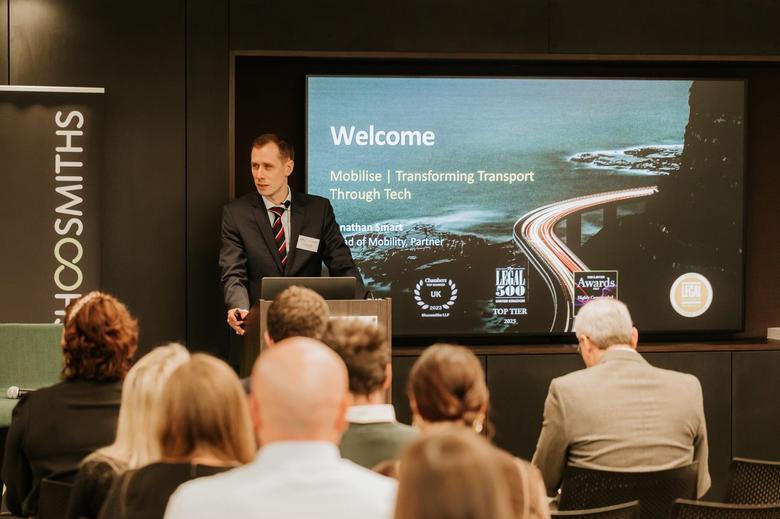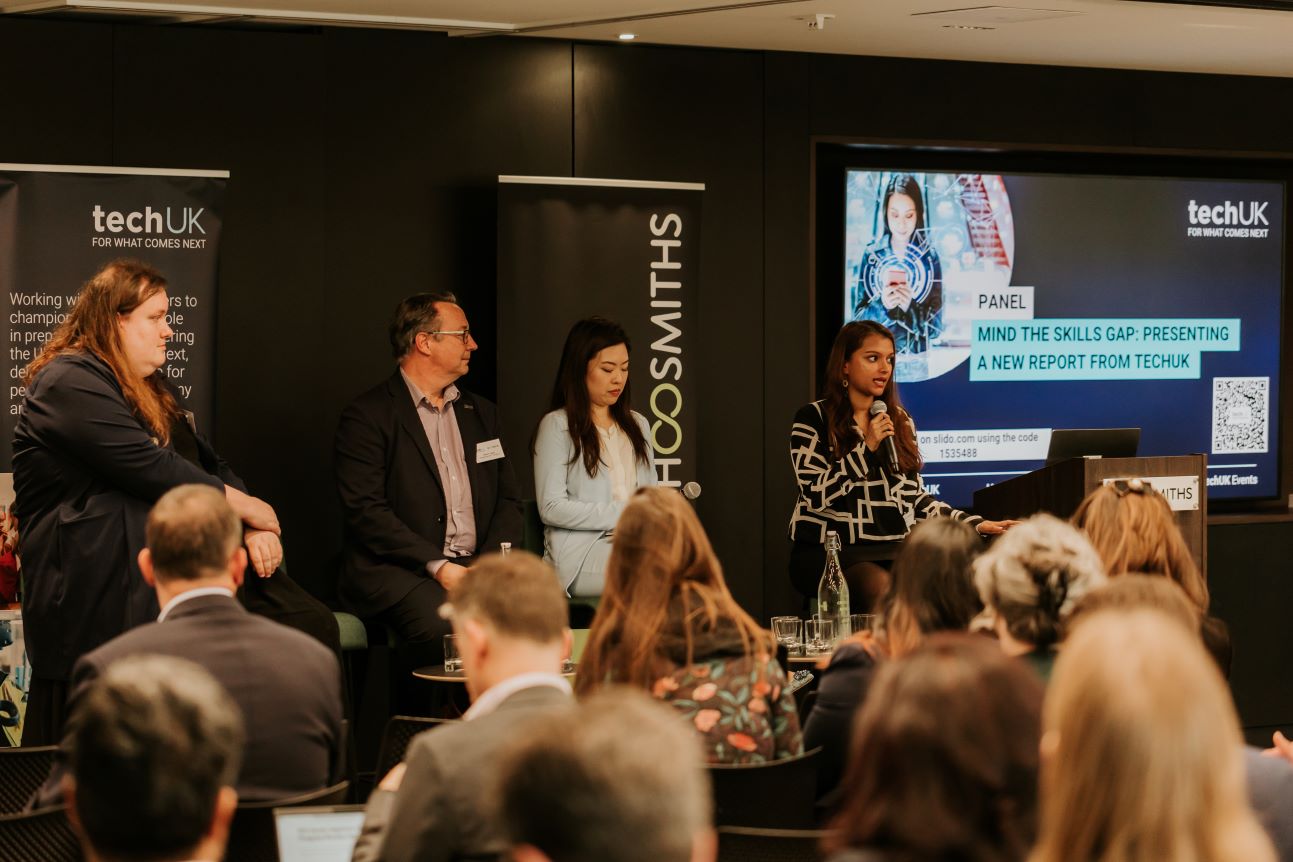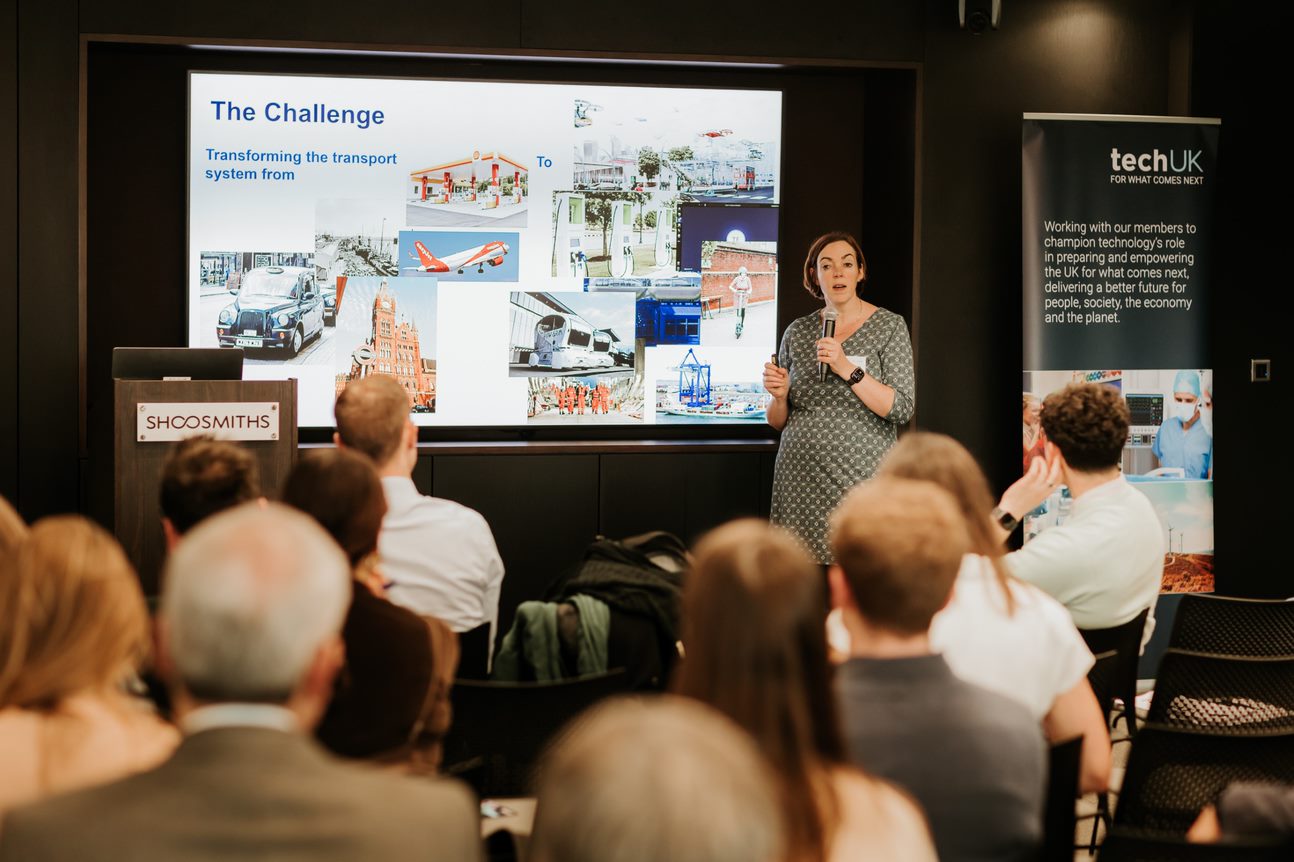Event round-up: techUK’s Mobilise l Transforming Transport Through Tech conference 2023
We are delighted to share a round-up of Mobilise 2023, our flagship future of transport and infrastructure conference, which took place on 29 March at the office of our sponsor Shoosmiths, in Central London.
Over the course of the day, public and private sector delegates spanning the worlds of technology, transport, and infrastructure, discussed and debated how we can accelerate the progress of tech-led modernisation of transport services.

In this round-up, Chris Reynolds, Public Sector and Central Government Team Leader at Softcat, and member of techUK's Intelligient Mobility and Transport Steering Board, shares some the key themes which emerged over the course of the day.
-
The industry is converging around the customer
Intelligent transport systems must prioritise the needs of the customer. These approaches should focus on improving accessibility, reliability, affordability, and capacity optimisation.
Getting this right is critical as transport, especially rail services, find themselves severely impacted by the long-term effects of the COVID-19 pandemic. This has permanently changed behaviours that need to be understood and catered towards. Technology can play an important role as the use of AI and machine learning can tailor services to individual citizens, while digital twin adoption can speed up innovation.
Mobility forms are also evolving with changing needs. Take Starship Technology's delivery robots operating in places such as Milton Keynes as a prime example. Mobility-as-a-Service (MaaS) offerings are also proliferating to deliver more seamless experiences for passengers.

However, for the successful adoption of intelligent transportation, public engagement is crucial. Local communities need to be informed about the benefits of such systems, and messaging must be tailored to resonate with them.

-
There are significant challenges to overcome
To deliver more customer-centric services, there are some significant challenges to overcome. These include unpicking and simplifying an industry that has become hugely complex in terms of ticketing (there are currently 1,100 ticketing types for rail) and addressing the post-COVID drop in commuter traffic.
Breaking down silos in the sector is also fundamental for enabling transport to be delivered holistically and strategically. Currently, individual modes compete for funding and patronage. This needs to change if we are to improve services for the customer and deliver against important targets for net zero and leveling-up.
The industry must also unite if we stand any chance of reaching net zero by 2050, which includes working hand-in-hand with the energy sector. Transportation remains the hghest polluting industry in the UK and while alternatives to fossil fuels like hyrdogen may provide a remedy, they remain some way off. With technologies at different readiness levels, and a fragmented industy landscape, the need for coordinated policy has never been greater.
-
Time to act on skills
We celebrated the launch of techUK’s latest report “Driving the future of transport – addressing the skills gap”.

A panel session with some of the report’s key contributors outlined strategies the sector should adopt to reposition itself in the employment market. It was noted that graduates today will have up to 12 different careers, but with the transport sector being such a diverse industry in terms of challenges and opporunities, why not have 12 careers within one sector?
A key recommendation of the report is that the sector should indentify “icons” and champions, that can promote transport as a dynamic and thriving industry, where employees can make a significant positive impact. It was explained that this feeds into a broader need for the industry to not do itself down and stand proud of the cutting edge innovation taking place that future generations will want to be part of.
-
There is no shortage of innovation
In a keynote speech from Professor Sarah Sharples, Chief Scientific Adviser at the Department for Transport, we heard that transport and technology are converging at a staggering rate.

In fact, within a few years, we won’t be talking about transforming transport through technology, transport will simply be technology.
Across the day, we learned of exciting things happening in automation, 5G and 6G, drones, and robotics. Data platforms are joining previously separate data silos to benefit the customer, environment, and citizens. Technology is making transport safer, faster, cheaper and more reliable. It's time to grab the innovation opporunity, argued Professor Sharples.
-
We need to overcome policy and procurement issues to unlock innovation
It was recognised that although the UK’s innovation eco-system is world-leading, our ability to scale-up innovation, creating new industries and marketplaces, is falling short.
In policy, the industry must continue working to showcase how transport innovation will help us become a science and technology superpower. However, the government must also do its part by creating new regulatory frameworks to allow transformative technologies such as self-driving vehicles to deploy.
The need for outcome-based procurements is just as critical, empowering SMEs to provide the appropriate business case, with confirmed funding lines, and ensuring innovation IP is not routed to other countries.

These insights just scratch the surface of the huge amount of work there is to be done in delivering more intelligent transport and infrastructure. We would once again like to thank everyone who was involved in delivering this event.
techUK, through our Smart Infrastructure and Systems programme, made up of focussed member-led groups working in transport, energy and digital twins, will continue to advocate on behalf of our members to drive faster progress. If you would like to participate more actively in our work, please email [email protected] and [email protected].
Mobilise will return in 2024 and if you are interested in helping shape this event as a sponsor, please contact [email protected].
Headline sponsor:

Shoosmiths is a major law firm advising UK and international clients from its offices across the United Kingdom and Brussels.The firm is a trailblazer in client excellence and innovation, specialising in real estate, corporate and commercial matters. It has five specialist sector areas: mobility, energy and infrastructure, technology, living and financial services.
Shoosmiths’ team of expert mobility lawyers – many of whom have worked in-house at companies within the automotive and rail industries – provide genuine sector leading advice. The multi-disciplinary team offers practical, commercial support for all legal matters faced by companies operating within the mobility sector. This includes commercial contracts, finance, corporate, employment, IP, data protection, litigation, real estate and regulatory matters.
Shoosmiths’ pre-eminent knowledge of the mobility sector is critical to being able to not only advise clients on legal matters, but also help them to plan, adapt and innovate so that they can maximise emerging opportunities and respond to economic and policy changes. To find out more about Shoosmiths’ mobility team, please visit here.
Smart Infrastructure and Systems updates
Sign-up to get the latest updates and opportunities from our Smart Infrastructure and Systems programme.




